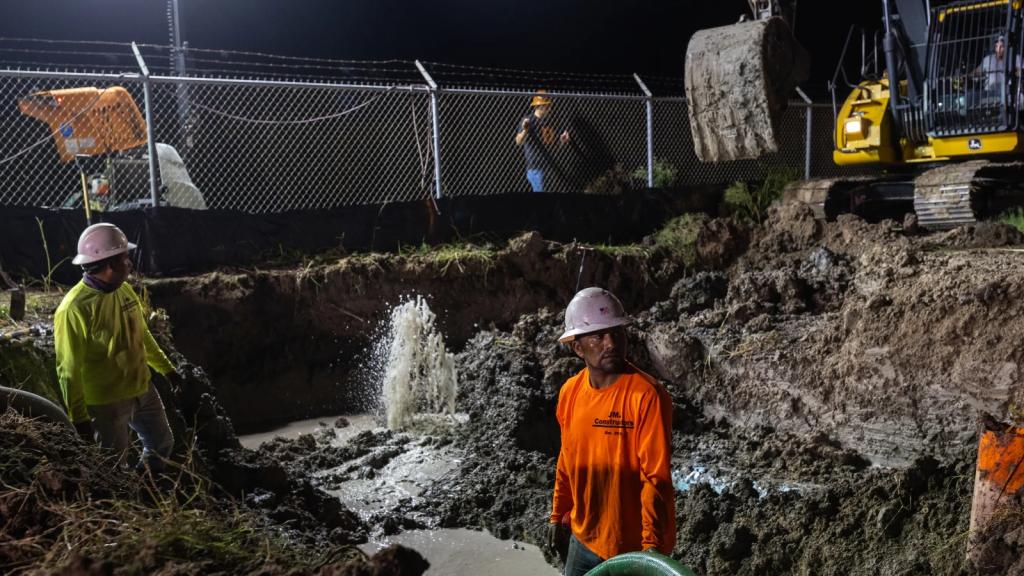When I first read the E&E News PM story ($ub. req’d), “Boxer eyeing bold move to thwart GOP filibuster on emissions bill,” I was skeptical of the strategy described:
The chairwoman of the Environment and Public Works Committee is considering a bold budget move aimed at passing global warming legislation in the Senate without having to deal with an expected Republican filibuster.
Sen. Barbara Boxer (D-Calif.) said that she is researching the use of the budget reconciliation process as an avenue for passing cap-and-trade legislation now considered a key agenda item for President Obama.
“We’re certainly exploring it as a possibility,” Boxer said of budget reconciliation, a bill that cannot be filibustered and therefore does not require meeting the 60-vote threshold that has consistently been a key hurdle to passage of global warming legislation.
After all, the climate bill will be among the consequential pieces of legislation ever considered by Congress given that failure to solve the climate problem will grievously harm the health and well-being the next 50 generations of Americans (see here). Shouldn’t that issue be debated extensively?
But then I read William Kristol’s Thusday op-ed, which argued Republicans need to “find reasons to obstruct and delay” (see here) Obama’s agenda. I guess that’s why they I call it the conservative movement stagnation.
Conservatives have no strategy for averting catastrophe. Indeed, they have chosen to tie the fate of their entire movement stagnation to humanity’s self-destruction (see here). It is now taken for granted that one must get 60 votes for every piece of legislation because it is taken for granted that conservatives will filibuster anything Democrats tried to do, including trying to pass legislation aimed at preventing the unimaginable horror of 5.5° to 7°C warming and 850 ppm.
I still think Obama and his team must actively work to explain to the public the urgent need for action and the availability of myriad affordable solutions (see here). But I think Boxer’s strategy may be worth considering. Here are more details:
Debate over use of the reconciliation process for key policy items is always controversial in the Senate. Former President George W. Bush and Hill Republicans tried unsuccessfully to use it as a way to open up the Arctic National Wildlife Refuge to oil and gas drilling.
But Boxer insisted that reconciliation should not prompt an outcry because the process is a part of the Senate rulebook. “That’s not circumventing anything,” she said. “I’m saying that we have a process here called reconciliation. It’s sometimes used. It’s sometimes not used. We’re looking at that as a possibility. We’re looking at all the options right now.”
As part of his budget blueprint submitted to Congress today, Obama included almost $645 billion in assumed revenue by 2019 for a new cap-and-trade program. The money would come from power plants and other industrial sources of greenhouse gas emissions as they pay for allowances to comply with the environmental program. Obama did not say anything, however, about the idea of budget reconciliation language, instead leaving that to Congress.
Democratic leaders were careful to avoid any commitments on the topic. Jim Manley, a spokesman for Senate Majority Leader Harry Reid (D-Nev.), declined to comment.
Senate Budget Chairman Kent Conrad (D-N.D.), the lead author of the upcoming budget resolution, told reporters that the subject is only now coming up for debate. “No decisions have been made on reconciliation,” he told reporters. “We’ve got to go through the consultation process with our colleagues and determine the best course.”
Even if the Senate opts against using reconciliation now, Conrad explained that lawmakers could return to the issue later this year with a second attempt. “I just laid that out there not because I have a plan to use it, but it seems to me as people think about this, they ought to know what the rules provide,” he said.
Budget reconciliation on cap-and-trade legislation would be particularly noteworthy given previous efforts to move the legislation. Cap-and-trade advocates hit a high-water mark in the Senate last summer with 48 procedural votes on global warming legislation. Earlier attempts won 43 votes in 2003 and 38 votes in 2005. Senate sponsors had hoped to reach 60 this year with help from the Obama administration and a coalition of moderate Democrats and Republicans.
Should Boxer push further on the issue, she will need to be careful not to upset some of the very moderate senators who in the past have been deemed critical to passing climate legislation.
“I’m not in favor of using the budget as a backdoor approach to dealing with climate change,” argued Sen. Ben Nelson (D-Neb.), who is one of 15 moderate Senate Democrats who have teamed up to work on some of the key underlying issues in a cap-and-trade bill.
“It’s not the way to address an issue of that magnitude,” added Sen. John McCain (R-Ariz.), the author of cap-and-trade legislation that has twice come up for Senate floor debate.
Sen. Olympia Snowe (R-Maine), a key GOP moderate in helping Obama move his economic stimulus plan, also found fault with the reconciliation process. “I just think it’s going to harden lines and solidify things, and we’ve got to build a consensus,” she said. “So I don’t know if that’s the way to do it.”
And Sen. Lisa Murkowski of Alaska, another moderate Republican on climate change, echoed those concerns.
“The issue we’re dealing with is of such magnitude, to be rushing this through so you can meet a budget deadline if you will, if we don’t get it right, think of what it does to this economy,” she said. “I think anything that would artificially move this ahead before we’re ready is a dangerous place to be.”
Boxer explained that if Democrats do pursue reconciliation, they would still need to move ahead with other climate bills that cannot be included, such as the distribution of funding and offsets. “There’d be some follow up pieces we’d have to do,” she said. “But the vast majority of it would be done.”
Sen. Ben Cardin (D-Md.) said the reconciliation approach merits consideration for Democrats who have long been trying to pass climate legislation. “I think it’s a clear possibility,” he said. “I think the bottom line is we’re looking for ways to make sure these issues are considered. And there’s an ability for the majority to enact policy in the Senate. There’s a lot of ways to do it. And reconciliation is one of the tools.”
Traditional Republican opponents were not happy to hear that Boxer was considering the budget reconciliation process.
“Time is not their friend,” said Senate Environment and Public Works Committee ranking member James Inhofe (R-Okla.). “And consequently, they’re going to expedite this as quickly as they can.”
If Boxer and Senate Democratic leaders proceed, Inhofe predicted vocal opposition. “There’s going to be a lot of resistance out there and I think when you start looking at the budget, the stimulus package, the bailouts, people are really fed up with it,” he said. “But there’s now a liberal arrogance in there. They’re going to try to do it in whatever way they think they can get it by, as quick as they can.”
This post was created for ClimateProgress.org, a project of
the Center for American Progress Action Fund.


